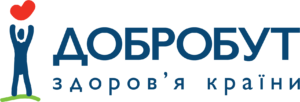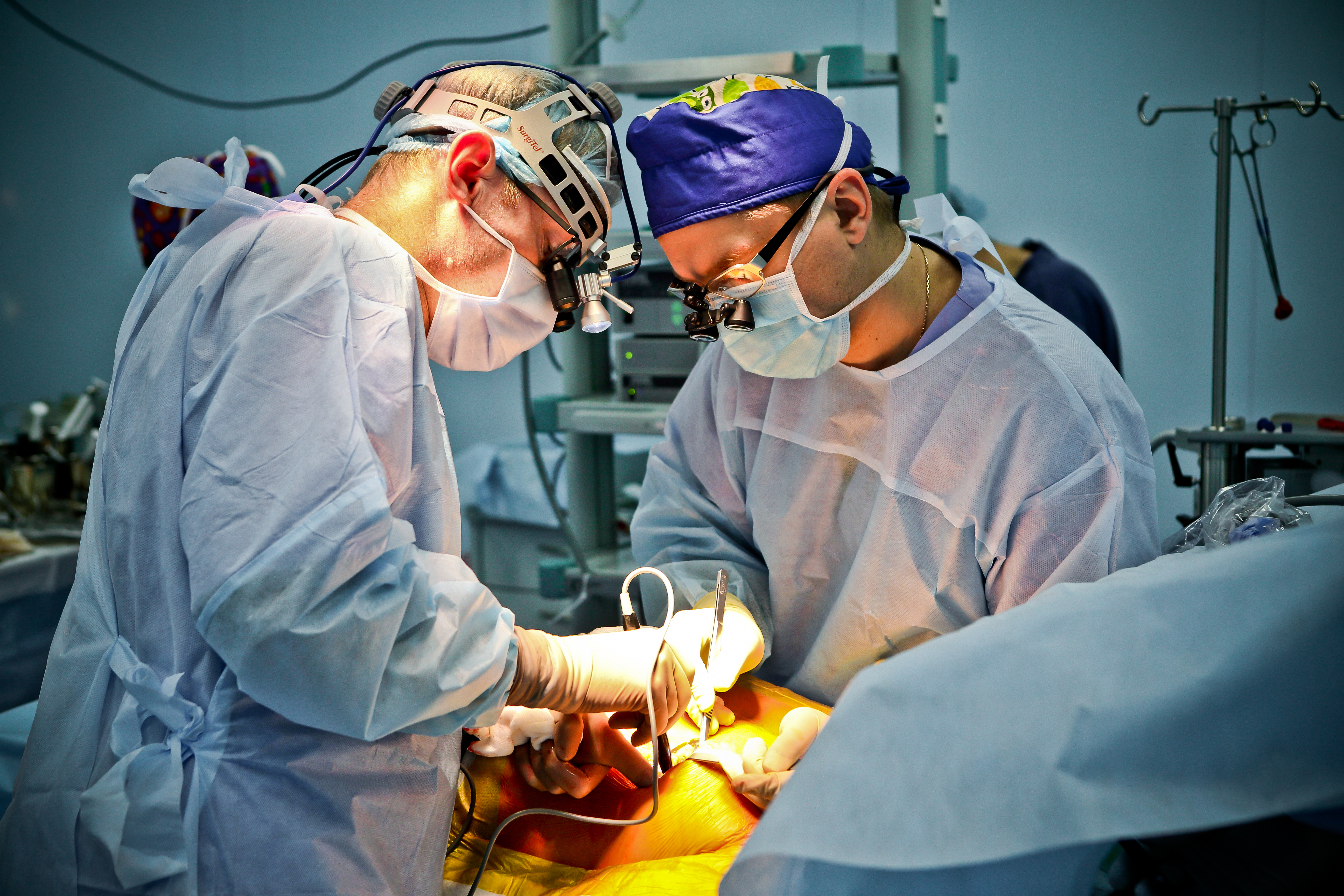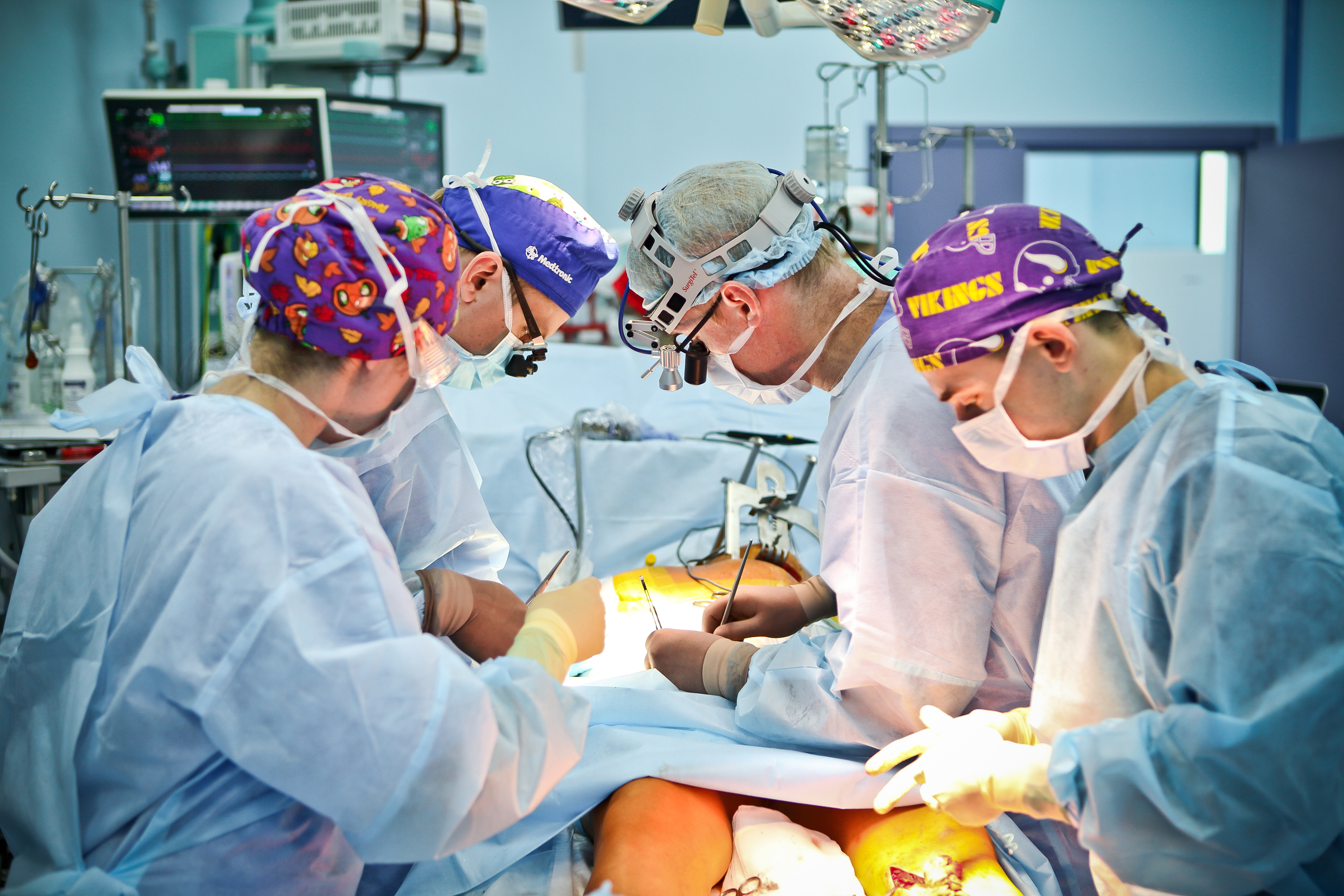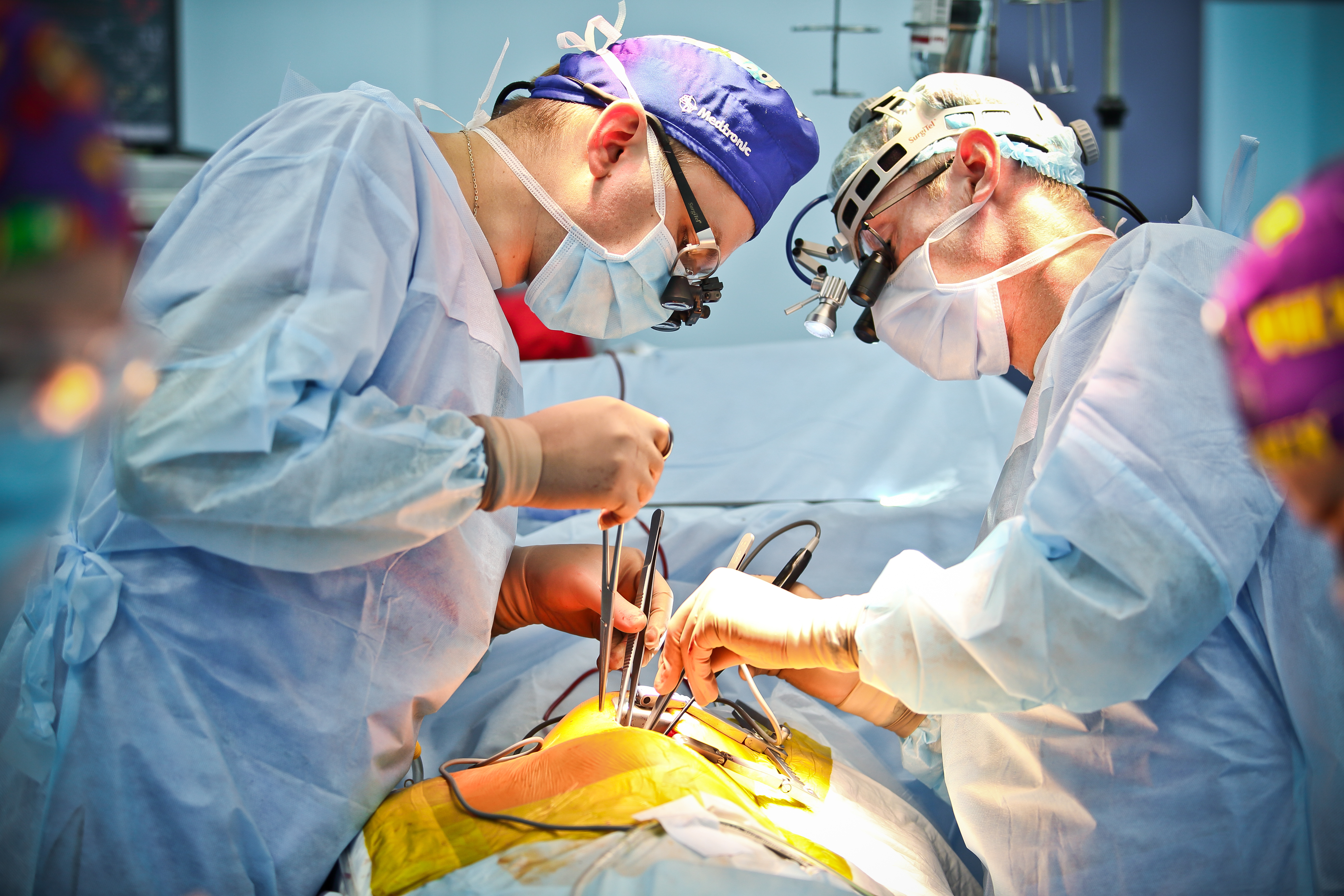The year 2016 marked a new cornerstone in Ukrainian medicine – the first private cardiac surgery center opened in the country. A year later, the success of the team that dared to take on such an ambitious project has been recognized by fellow doctors and dozens of saved patients.
Private medicine has been actively developing in Ukraine for nearly 20 years. Up until 2016, however, local private clinics did not venture to get involved in cardiac surgery, as one of the most complex fields of medicine required not only readiness to the invest a lot into expensive leading technologies, but also commitment to provide top level services. Up until now, Dobrobut Clinic Chain that has been operating in Ukraine since 2001 has been the first and the only one to dare and do that.
Opening of the Cardiac Surgery Center with the most advanced OR and equipment in December 2016 and 12-bed in-patient facility that meets international standards for providing medical care in 2017 served as a symbol of 15-year history of innovations and success of Dobrobut, opening a new chapter.
“This also marked a new chapter in the history of Ukrainian medicine,” says Oleh Kalashnikov, Director and Co-founder of Dobrobut chain. “The year of successful operation of our Cardiac surgery Center indicates that the country already has strong and competent private medicine that is no longer confined to diagnostics and relatively simple procedures, but is ready to assume maximum responsibility for Ukrainians’ health and perform complex, even unique, operations.”
Dozens of complicated cases…
Although more Ukrainians are now choosing paid clinics, many of them are strongly convinced that private medicine does not dare to take on risky surgeries ‘not to affect statistics’. This is definitely not the story of Dobrobut Cardiac Surgery Center, as many of its patients are the ones who had been rejected by all other medical institutions in Ukraine. The lion’s share of cardiac surgeries performed in the client are complex open-heart surgeries, Kalashnikov says. Oleksandr Bablyak, one of the most renowned cardiac surgeons in Ukraine and Head of the Center, adds that one of the reasons he came to work at Dobrobut was because here he can operate on difficult patients without the necessity to defend his case to the chief doctor. “I do my work and I don’t think about statistics,” he says.
Be that as it may, Dobrobut Cardiac Surgery Center has even better statistics than medical centers that do not take severely ill patients, despite that the risks of cardiac surgery on the euroSCORE scale for some patients are higher than 5% (that’s a lot, as in the majority of cases it is less than 1%). There were also cases of 12% risks. In fact, some cardiac surgeons working at Dobrobut have success stories of surgeries even with the threatening 60%.
…and one revolutionary method
Even doctors from other medical institutions admit that Dobrobut today has one of the best cardiac surgery teams in the country, especially after the clinic became the first in Ukraine and the world to perform minimally invasive multi-vascular coronary artery bypass surgery in July 2017, one of the highest demanded cardiac surgeries that allows for fully restoring blood flow in the myocardium in ischemic heart disease, even in cases when all arteries are constricted or blocked. Up until the summer of 2017, this surgery, with around 20,000 people in our country alone requiring one every year, was performed via a large 25-cm chest incision; Dobrobut’s cardiac surgeons proposed a new, less invasive method that allows for performing the surgery with 5-10 cm incision between the ribs.
European doctors have already expressed interest in Dobrobut doctors’ achievements – our surgeons are expected to deliver a report at the Annual Congress of the European Society of Cardiovascular and Endovascular Surgery (ESCVS) in 2018. And they do have something to tell: a patient spends only 24 hours in ER after this kind of surgery and not more than a week at the hospital. He/she can lead an active life without any limitations in a month and do hard physical work in four months, even if there was a heart attack in the diagnosis! This is impressive both for patients, Ukrainian and foreign colleagues of doctors at Dobrobut.
Meanwhile, Dobrobut’s cardiac surgeons are ready to give master classes for their colleagues, having performed 40 successful minimally invasive multi-vascular coronary artery bypass surgeries over six months. Neither clinic nor the team of doctors intend to keep their method exclusive and are ready to share the experience, says Bablyak.
“All heart surgeries in the future should become minimally invasive”
Dobrobut’s cardiac surgery has one more distinguishing feature – the desire to develop minimally invasive cardiac surgery in Ukraine. Already now, many surgeries at the center are performed via mini-access (the cost of the surgery does not change at that) – not only minimally invasive multi-vascular coronary artery bypass surgery, but also valve repair and replacement, repair of some congenital heart defects. “We can now perform all isolated heart surgeries (when only one problem is solved), using minimally invasive method,” tells Bablyak, a cardiac surgeon with over 20 years of experience in surgery both for adults and children. “Now, we will be working on hybrid surgeries, when a patient needs repair of several problems. At the moment, such surgeries are performed with a 25-cm chest incision, but in 2019, Dobrobut is planning to open a hybrid OR, where we will be able to perform even complex surgeries with minimum invasion. I’d like our cardiac surgery team to become the locomotive that will push forward and put Ukrainian cardiac surgery on a new track.” These are ambitious plans, but it seems Dobrobut has everything for their implementation.
5 successful life-saving stories
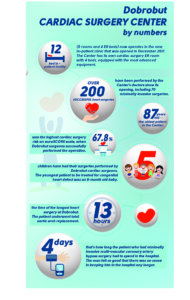
Mykola Voitsekhovskiy, 60, Odesa
One of the first patients of Dobrobut Cardiac Surgery Center to undergo minimally invasive multivascular coronary artery bypass surgery. A week later, he could lift 15-kg watermelons, walk 3 km in the morning and in the evening and have a rather active lifestyle. Ten days after bypass surgery, Mykola went to check on his favorite beehive and see whether it was time to pump honey. Meanwhile, prior to the surgery, the patient suffered from several heart attacks and the doctors had to attach four bypass grafts.
Maria Derevyanko, 19, Ivano-Frankivsk Oblast
In October 2017, Maria was diagnosed with atrial septal defect, a congenital heart defect that must be treated at a young age, otherwise the person might not live to the age of 40 and sometimes 27-30. In Maria’s case, the doctors got to the problem in time – the heart hasn’t worn out yet and after the surgery the young woman would be totally healthy. Furthermore, Dobrobut cardiac surgeons corrected the defect using a minimally invasive method, so only a small scar between the ribs will remind Maria about the surgery. The girl spent only 5 days at the clinic.
Tamara Shuba, 81, Chernihiv
Knowing about the in numeral number of her diagnoses – ischemic heart disease, severe hypertension, hypothyroidism, asthma, diabetes and arthrosis, which completely destroyed the knee joints – the woman almost had no hope. After suffering from a heart attack, she learned that all her heart arteries were affected and only surgery could fix it. Tamara doubted there was a clinic that would agree to operate on a person of her age and with such a list of diseases. Dobrobut restored her faith in the Ukrainian medicine and humanity, she says. She had three bypass grafts attached and now her heart will continue beating.
Taras Chumachenko, 8 months, Zaporizhzhia
The boy’s parents were told that he had Tetralogy of Fallot, a congenital heart disease with four defects at once, during 22nd week of pregnancy. They were told the surgery had to be done in the first months or he would not survive one year. Repairing this defect requires a very complicated surgery. But it all went good. To the question whether there were any reservations or concerns, Bablyak replies: “We are a team of professionals, so, no reservations or concerns!” The only thing that concerned the doctor in this case was that it is not yet possible to repair Tetralogy of Fallot, using minimally invasive method, so they had to do the chest incision.
Anna Danylyak, 69, Lviv Oblast
Ten years ago, the woman learned that she had an inherited heart disease – bicuspid aortic valve. Anna came to Dobrobut, when the valve’s diameter was only 0.4 cm (must be 2-2.5 cm). If her heart had stopped, nobody would have been able to restart it, because it is impossible to pump blood through such a narrow opening. Surgery saved the patient’s life – doctors replaced the valve, but not with a standard mechanical one, when she would have to take blood thinners and undergo tests all her life, but with a modern tissue valve made from porcine heart valve. That’s 15 years of quality life. After that, another valve replacement is possible, but involving a less complicated surgery.
